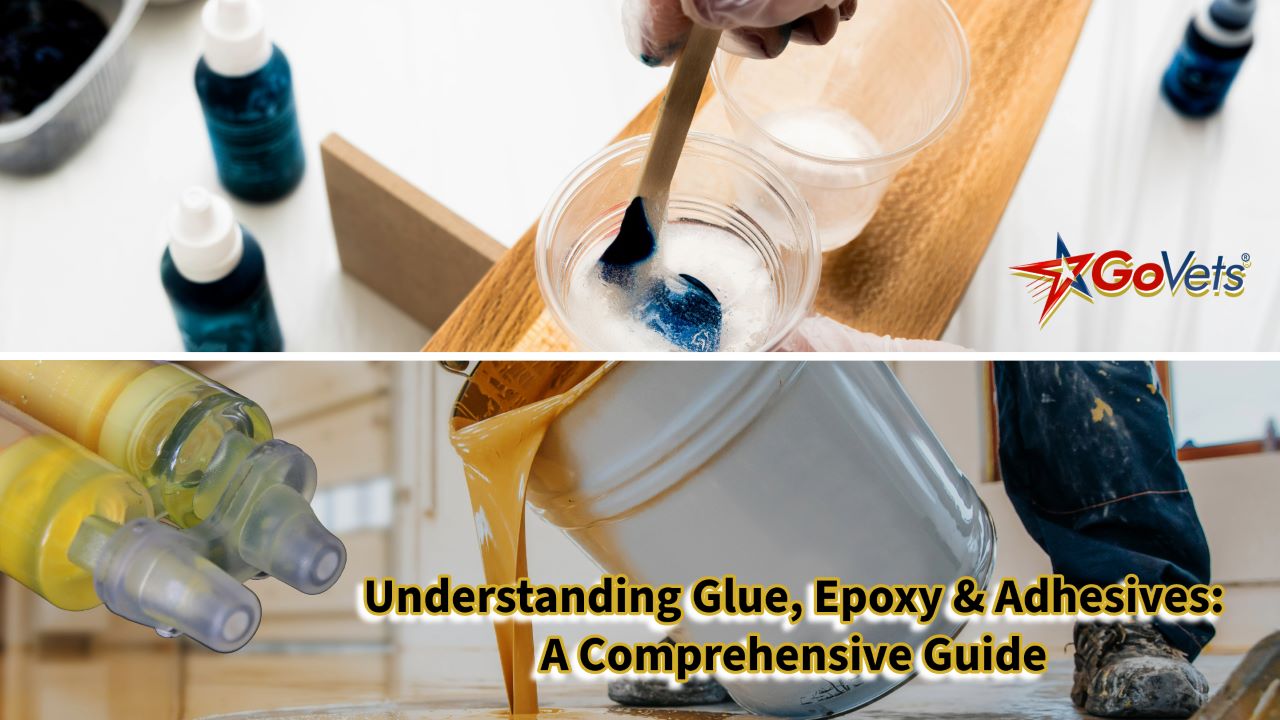Understanding Glue, Epoxy & Adhesives: A Comprehensive Guide

Overview
In the realm of construction, crafting, and repair work, the significance of reliable adhesives cannot be overstated. Glues, epoxies, and adhesives form the backbone of countless projects, providing strength, durability, and versatility across a wide array of applications. In this guide, we delve into the various types of products under this category, exploring their uses, benefits, and industry applications.
Glue, Epoxy & Adhesives
From bonding materials together to filling gaps and providing structural integrity, glues, epoxies, and adhesives serve as indispensable tools in the hands of craftsmen, builders, and DIY enthusiasts alike. This category encompasses a diverse range of products tailored to meet specific needs across various industries and applications.
Overview
Glues, epoxies, and adhesives encompass a broad spectrum of bonding agents designed to adhere to different materials, including wood, metal, plastic, and more. These products come in various forms, including liquids, gels, pastes, and tapes, each offering unique properties suited to different applications.
Typical Applications
- Woodworking projects
- Automotive repairs
- Electronics assembly
- Plumbing installations
- Crafting and model making
- Construction and building maintenance
- Jewelry making
- Shoe repairs
- Marine applications
- Aerospace manufacturing
Typical Industries and Uses for those Industries
- Construction: Bonding structural elements, sealing joints, and fixing building components.
- Automotive: Repairing body panels, securing trim pieces, and assembling interior components.
- Electronics: Potting electronic components, securing wires, and encapsulating circuits.
- Manufacturing: Bonding parts in assembly lines, laminating materials, and adhering labels.
- Woodworking: Joining wood pieces, laminating surfaces, and repairing furniture.
- Aerospace: Bonding composite materials, sealing aircraft components, and assembling interiors.
- Marine: Sealing hulls, bonding fiberglass, and repairing boat fixtures.
- DIY/Home Improvement: Tackling various repair and crafting projects around the house.
- Jewelry: Assembling pieces, setting stones, and repairing delicate ornaments.
- Medical: Adhering medical devices, sealing wounds, and encapsulating implants.
Top 10 Benefits of using this product
- Versatility: Suitable for bonding a wide range of materials.
- Strength: Provides strong and durable bonds.
- Durability: Resistant to heat, moisture, and chemical exposure.
- Fast curing: Offers quick setting times for rapid repairs.
- Gap filling: Capable of filling voids and irregularities in surfaces.
- Temperature resistance: Maintains integrity under extreme temperatures.
- Flexibility: Accommodates slight movements and vibrations without failing.
- Waterproof: Withstands exposure to water and moisture.
- Ease of use: Simple application process for hassle-free bonding.
- Longevity: Ensures lasting bonds for extended service life.
Top 10 Questions & Answers related to this product
-
What is the difference between glue and epoxy? Glue typically refers to adhesive substances derived from natural or synthetic polymers, while epoxy is a type of adhesive that consists of two components—a resin and a hardener—that undergo a chemical reaction to form a strong bond.
-
How long does epoxy take to cure? Cure times vary depending on the specific product and environmental conditions, but most epoxies reach full strength within 24 to 72 hours.
-
Can epoxy be used on outdoor surfaces? Yes, many epoxy formulations are designed to withstand outdoor exposure and are resistant to UV radiation, moisture, and temperature fluctuations.
-
Is epoxy safe to use indoors? When used according to manufacturer instructions, epoxy is safe for indoor applications. However, adequate ventilation is recommended to minimize exposure to fumes.
-
Can epoxy be painted over? Yes, epoxy coatings can be painted over once they have cured fully. However, proper surface preparation is crucial to ensure adhesion.
-
What surfaces can epoxy adhere to? Epoxy can bond to a variety of surfaces, including metal, wood, glass, concrete, ceramics, and plastics.
-
How should I store epoxy products? Epoxy should be stored in a cool, dry place away from direct sunlight and heat sources. Properly sealed containers can extend the shelf life of epoxy products.
-
Can epoxy be sanded and drilled? Yes, cured epoxy can be sanded, drilled, and machined like most solid materials. However, appropriate safety precautions should be taken to avoid inhaling dust particles.
-
Is epoxy food-safe? While some epoxies are formulated for food contact applications, it's essential to use products specifically labeled as food-safe for such purposes.
-
How do I remove cured epoxy from surfaces? Cured epoxy can be removed mechanically by scraping or sanding. Chemical solvents or heat may also help soften the epoxy for easier removal.
Product Recommendations
Epoxy & Structural Adhesives
Two-Part Epoxy Acrylic and Urethane Adhesives
Cordless Epoxy Applicators
Automotive Epoxy Putty
Epoxy Coatings
Epoxy Based Primers
Epoxy Based Spray Paints
Epoxy Based Spray Primers
Air-Powered Epoxy Applicators
By understanding the nuances of each product and its applications, you can harness the power of glues, epoxies, and adhesives to tackle any project with confidence and precision. Whether you're a seasoned professional or a DIY enthusiast, having the right adhesive at your disposal can make all the difference in achieving optimal results.









